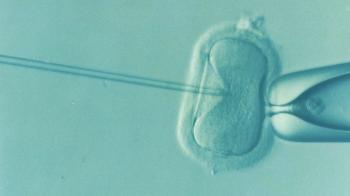Restoring damaged brain cell connections...New Drug Candidate NS101 Suggests Strategies to Treat Alzheimer's Disease
Aug 04, 2025
Domestic researchers have announced new possibilities in the field of Alzheimer's disease treatment.
Alzheimer's disease is a typical degenerative dementia disease, and memory loss is a major symptom. Until now, the main treatment method was to remove amyloid beta, a protein waste that accumulates in the brain. However, this method had a limitation in that cognitive functions such as memory were not clearly restored.
A research team led by Sung Jae-young, a professor of convergence medicine at Korea University School of Medicine (researcher Kim Han-byeol, Yoo Sang-jin, Kwak Ho-yoon, and Shishunma) proposed a new treatment strategy to restore the connection between synapses damaged by Alzheimer's disease, that is, brain cells. The research team discovered that the protein 'FAM19A5' secreted from brain cells is the cause of the decline in synaptic function, and developed an antibody treatment candidate 'NS101' to suppress it.
As a result of administering NS101 to mice with Alzheimer's disease, damaged synapses were restored and memory and learning ability were remarkably improved. In addition, the safety of the drug and its effectiveness on the target protein (FAM19A5) were demonstrated in a Phase 1 clinical trial of 64 healthy adult males.
Sung Jae-young, a professor of convergence medicine at Korea University School of Medicine, said "This study targeted synaptic loss, the main cause of Alzheimer's disease, as a direct treatment target."It is significant in that it has improved cognitive function, which was previously difficult to recover from." "We plan to verify the effectiveness of NS101 step by step through subsequent clinical trials," he said.
On the other hand, this study was conducted in collaboration with Neuracle Science, a bio venture company affiliated with Korea University's technology holding company, and was published in the global dementia research journal Alzheimer's Research & Therapy'FAM19A5 inhibition restores synaptic loss and cognitive decline in a mouse model for Alzheimer's disease (Inhibition of FAM19A5 reverses synaptic loss and cognitive decline in mouse models of Alzheimer's disease).
Alzheimer's disease is a typical degenerative dementia disease, and memory loss is a major symptom. Until now, the main treatment method was to remove amyloid beta, a protein waste that accumulates in the brain. However, this method had a limitation in that cognitive functions such as memory were not clearly restored.
A research team led by Sung Jae-young, a professor of convergence medicine at Korea University School of Medicine (researcher Kim Han-byeol, Yoo Sang-jin, Kwak Ho-yoon, and Shishunma) proposed a new treatment strategy to restore the connection between synapses damaged by Alzheimer's disease, that is, brain cells. The research team discovered that the protein 'FAM19A5' secreted from brain cells is the cause of the decline in synaptic function, and developed an antibody treatment candidate 'NS101' to suppress it.
As a result of administering NS101 to mice with Alzheimer's disease, damaged synapses were restored and memory and learning ability were remarkably improved. In addition, the safety of the drug and its effectiveness on the target protein (FAM19A5) were demonstrated in a Phase 1 clinical trial of 64 healthy adult males.
Sung Jae-young, a professor of convergence medicine at Korea University School of Medicine, said "This study targeted synaptic loss, the main cause of Alzheimer's disease, as a direct treatment target."It is significant in that it has improved cognitive function, which was previously difficult to recover from." "We plan to verify the effectiveness of NS101 step by step through subsequent clinical trials," he said.
On the other hand, this study was conducted in collaboration with Neuracle Science, a bio venture company affiliated with Korea University's technology holding company, and was published in the global dementia research journal Alzheimer's Research & Therapy'FAM19A5 inhibition restores synaptic loss and cognitive decline in a mouse model for Alzheimer's disease (Inhibition of FAM19A5 reverses synaptic loss and cognitive decline in mouse models of Alzheimer's disease).
|
This article was translated by Naver AI translator.














